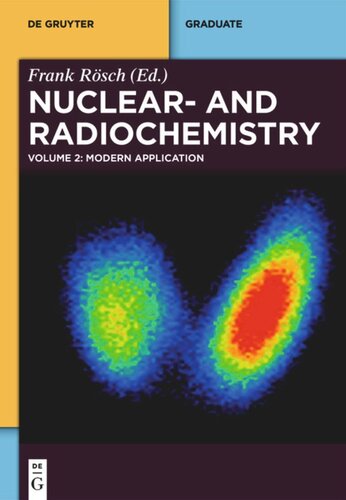

Most ebook files are in PDF format, so you can easily read them using various software such as Foxit Reader or directly on the Google Chrome browser.
Some ebook files are released by publishers in other formats such as .awz, .mobi, .epub, .fb2, etc. You may need to install specific software to read these formats on mobile/PC, such as Calibre.
Please read the tutorial at this link: https://ebookbell.com/faq
We offer FREE conversion to the popular formats you request; however, this may take some time. Therefore, right after payment, please email us, and we will try to provide the service as quickly as possible.
For some exceptional file formats or broken links (if any), please refrain from opening any disputes. Instead, email us first, and we will try to assist within a maximum of 6 hours.
EbookBell Team

0.0
0 reviewsNuclear chemistry represents a vital field of basic and applied research. Modern applications cover, for example, fundamental aspects of energetics and high-sensitive, high-selective and non-destructive analytical technologies. Nuclear chemistry and radiopharmaceutical chemistry are increasingly used to bridge pharmaceutical and medical research with state-of-the-art non-invasive molecular diagnosis as well as with patient-individual treatment. While volume I on Introduction to Nuclear Chemistrydescribes the origin of unstable atoms and their pathways to stabilize, this volume II illustrates the spectrum of modern applications of nuclear and radiochemistry.
In various chapters, leading scientists address
-the measurement of radiation,
-the dosimetric action of radioactive radiation and radiation safety
-nuclear dating
-elemental analysis by neutron activation,
-radiation mass spectroscopy and chemicals speciation,
-radiochemical separations,
-applications of radiochemistry to life sciences,
-the chemistry of radioelements: Tc and At, actinides and the transactinides
-fundamentals of modern nuclear energy.